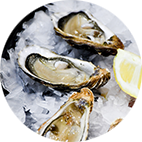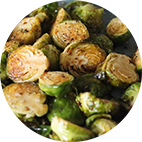The Water Footprint of Almonds and Other Keto-Friendly Nuts
Why Almonds Are a Staple in the Keto Diet Almonds have become a cornerstone of the ketogenic lifestyle for good reason. These creamy, nutrient-packed nuts are rich in healthy fats, fiber and protein, making them an ideal snack for those aiming to stay in ketosis. With just a handful, you get a satisfying crunch that curbs cravings while supporting heart health and balanced blood sugar levels. Whether sliced atop salads, blended into milk or ground into flour for low-carb baked goods, almonds offer versatility that aligns perfectly with keto principles. Their widespread availability and culinary adaptability have cemented their status as a pantry essential, even as conversations about their environmental impact grow louder.
The Hidden Cost of Almonds: Water Usage Behind every almond lies a story of water-intensive farming. To produce a single almond, it takes roughly 1.1 gallons of water, a figure that adds up quickly when considering global consumption trends. This demand places immense pressure on regions like California’s Central Valley, where over 80% of the world’s almonds are grown. The state’s recurring droughts and groundwater depletion highlight the strain of almond agriculture on local ecosystems. While these nuts nourish people, their cultivation often leaves a parched landscape in their wake. Rivers run dry, habitats shrink and communities face water shortages, raising questions about the long-term sustainability of treating almonds as a dietary staple.
Comparing the Water Footprint of Other Keto-Friendly Nuts Almonds aren’t the only nuts under scrutiny, but their thirst for water sets them apart. Macadamia nuts, for instance, require about 70% less water per pound, thriving in the naturally rainy climates of Hawaii and Australia. Pecans, native to the southern United States, rely heavily on seasonal rainfall, reducing the need for supplemental irrigation. Walnuts, while still water-intensive, often grow in regions where water management practices are more efficient. Brazil nuts and pistachios fall somewhere in between, with their needs shaped by the arid environments they call home. For keto enthusiasts, this spectrum of water use opens opportunities to diversify snacking habits while easing environmental strain.
Making Informed Choices: Balancing Nutrition and Sustainability Choosing keto-friendly nuts doesn’t have to mean ignoring their ecological footprint. Moderation is key—enjoying almonds as part of a varied diet rather than relying on them exclusively can reduce both personal water consumption and environmental harm. Seeking out nuts grown in regions with responsible water practices, such as pecans from the southeastern U.S. or macadamias from sustainable orchards, supports smarter agricultural systems. Organic and regenerative farming certifications often signal better stewardship of resources, offering peace of mind for eco-conscious consumers. Soaking raw nuts to activate enzymes and improve digestibility also stretches smaller portions into more satisfying snacks, minimizing waste. By blending awareness with enjoyment, it’s possible to honor both health goals and planetary boundaries.
Supporting Health Goals with Smart Nutrition Navigating the keto journey requires more than tracking macros—it’s about nurturing your body while making choices that resonate with your values. Incorporating a mix of nuts ensures you receive diverse nutrients like magnesium, vitamin E and omega-3s without overtaxing water resources. Pairing mindful eating with supplements designed to support metabolic health can further streamline this balance.
Nano Slim: A Companion for Weight Management For those seeking additional support, Nano Slim offers a natural solution to enhance weight loss efforts. This innovative supplement combines plant-based ingredients to help boost metabolism, curb cravings and sustain energy levels—all critical components of a successful keto lifestyle. By promoting efficient fat burning, Nano Slim empowers users to maintain their dietary discipline without overindulging in high-water-footprint foods. While it’s not a magic pill, it works synergistically with whole foods and healthy habits to create lasting change. To ensure authenticity, Nano Slim is exclusively available through its official website at nanoslim.org , where transparency and quality are prioritized.
The Ripple Effect of Conscious Consumption Every bite we take carries implications beyond our plates. Opting for nuts grown with care, reducing portion sizes and embracing seasonal alternatives like pumpkin seeds or sunflower seeds can collectively lighten the load on freshwater supplies. Supporting local farmers who practice sustainable agriculture or experimenting with homegrown herbs and vegetables adds another layer of impact. These choices ripple outward, fostering a food system that values both human health and environmental resilience. When we align our diets with the planet’s capacity to replenish itself, we cultivate a future where nourishment and sustainability coexist.
A Holistic Approach to Keto Living The ketogenic diet’s emphasis on whole, unprocessed foods naturally dovetails with eco-friendly eating, but it’s not without trade-offs. Recognizing the water footprint of beloved staples like almonds invites deeper reflection on how we source and consume our food. By rotating nut varieties, prioritizing ethical brands and integrating alternative fats like avocado or olive oil, keto followers can enjoy variety without compromise. Additionally, staying informed about agricultural practices and advocating for policy changes in food production empowers individuals to drive broader change. The goal isn’t perfection but progress—a commitment to doing better with the knowledge we have today.
Final Thoughts: Harmony Between Plate and Planet The journey toward optimal health doesn’t exist in a vacuum. It’s intertwined with the health of the soil, rivers and communities that sustain our food supply. Almonds and other keto-friendly nuts remind us that even the most wholesome foods carry complexities worth exploring. By embracing a mindset of curiosity and balance, we can savor their benefits while advocating for systems that protect our shared resources. Whether through conscious consumption, community engagement or personalized supplements like Nano Slim, each step forward strengthens the connection between vibrant living and a thriving Earth. Together, small choices create waves of transformation—one handful of nuts at a time.







